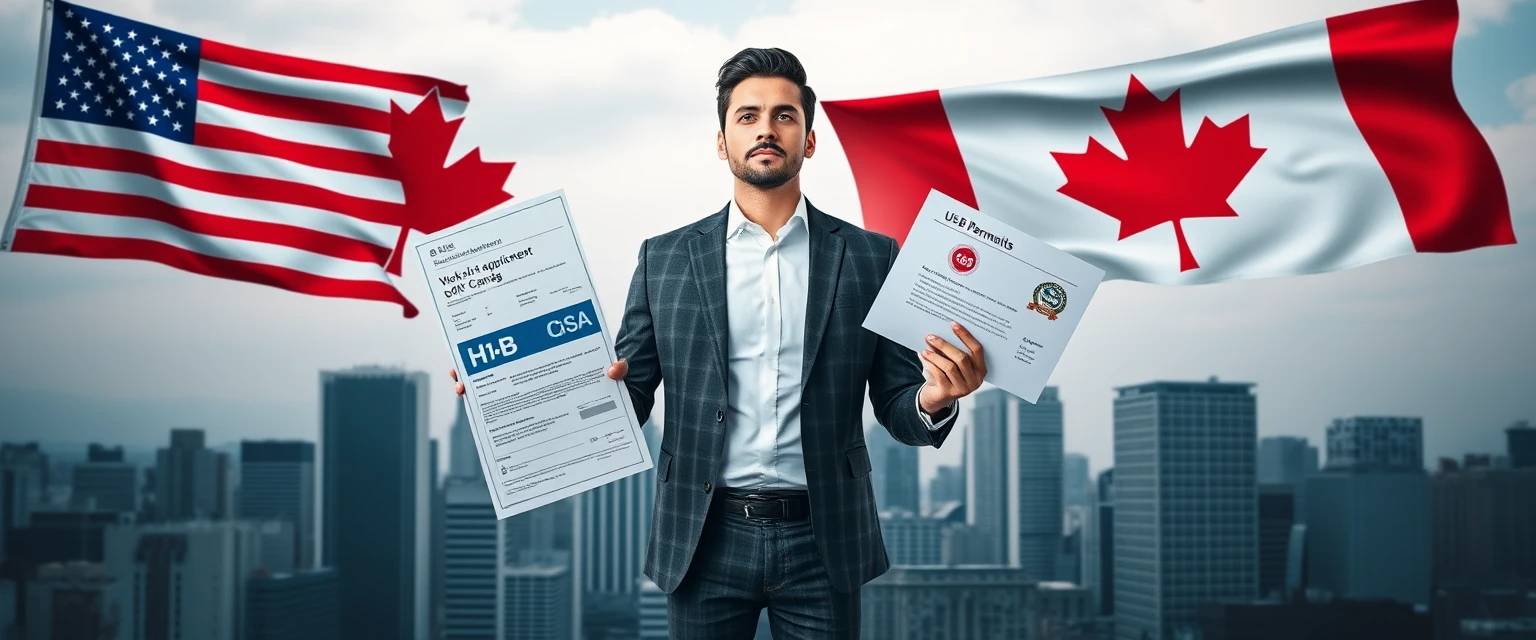How Canada’s Latest Immigration Levels Plan Benefits In-Canada Candidates: A Guide by Sayal Immigration
Canada’s newly released 2026-2028 Immigration Levels Plan has sent a clear message: temporary residents already living, working, and studying in Canada will receive priority when it comes to permanent residence (PR) applications. For individuals seeking an immigration consultant in Brampton, best immigration consultant in Canada, or trusted advice in Kitchener, Brampton, Scarborough, or London Ontario, this is excellent news. Sayal Immigration is here to help you understand these policy changes and navigate your path to Canadian permanent residency with confidence.
Canada’s Commitment to In-Canada Residents
Immigration Minister Lena Diab recently affirmed that Immigration, Refugees and Citizenship Canada (IRCC) will “give priority for permanent residence to temporary residents already living and settled in Canada.” This strategic shift aims to reduce the number of new arrivals while focusing on transitioning skilled workers, international graduates, and other temporary residents who have already established roots in Canadian communities.
The 2026-2028 Immigration Levels Plan sets a target of 380,000 permanent resident admissions annually through 2028, with a strong focus on economic immigration—accounting for 64% of total admissions. For complete official details, visit the Government of Canada’s Immigration Levels Plan page.
Express Entry: Maintained High Allocations
Despite slight reductions, Canada’s Federal High-Skilled category—which includes Express Entry admissions—remains robust. Targets have been set at 109,000 admissions in 2026, rising to 111,000 annually in 2027 and 2028. Express Entry continues to be one of the most effective pathways for temporary residents to transition to PR, especially through the Canadian Experience Class (CEC) program.
Research shows that CEC candidates—who already have Canadian work experience—are among the most successful immigrant cohorts in Canada’s labour market. If you’re a skilled professional working in Toronto, Mississauga, or Brampton and looking for a top immigration consultant in Toronto to help you with Express Entry, Sayal Immigration offers personalized CRS optimization, document preparation, and strategic guidance.
For more on Express Entry eligibility, visit the IRCC Express Entry portal.
Provincial Nominee Programs: Significant Increases
One of the most notable changes in the 2026-2028 plan is the dramatic increase in Provincial Nominee Program (PNP) allocations. Targets have jumped from 55,000 in 2025 to 91,500 in 2026, with further increases to 92,500 in 2027 and 2028—a 66% rise from last year.
This expansion gives provincial governments greater authority to nominate temporary residents already living and working in their regions. PNPs are particularly valuable for work permit and study permit holders in Ontario cities like Kitchener, Scarborough, and London Ontario, as most PNP streams prioritize candidates with local work experience or education.
In 2025, many provinces reported that 75% of nominated applicants were already in Canada, underscoring the importance of in-Canada candidates to the PNP system. If you’re considering PNP options and need a best immigration consultant in Kitchener or immigration consultant in Scarborough, Sayal Immigration’s RCIC-certified team can assess your eligibility and guide you through provincial nomination processes.
Learn more about PNPs at the IRCC Provincial Nominee Program page.
One-Time Initiatives for 2026 and 2027
To further support the transition of temporary residents to permanent status, IRCC has announced two significant one-time initiatives:
1. Accelerated PR for Skilled Workers
Over the next two years, IRCC will fast-track the transition of up to 33,000 foreign workers already in Canada to permanent residence. This initiative specifically targets workers in in-demand sectors, with special emphasis on those working in rural areas.
Eligible candidates are those who have:
-
Established strong roots in their communities
-
Maintained steady employment in their occupations
-
Contributed to the economy through taxes and labour market participation
This program is ideal for skilled workers currently on work permits in cities like Brampton, Mississauga, and smaller communities throughout Ontario. If you’re a temporary worker seeking a top immigration consultant in Mississauga or Brampton to help you transition to PR, Sayal Immigration provides comprehensive support from eligibility assessment to final application submission.
2. PR Pathways for Protected Persons
IRCC will undertake a parallel initiative to grant permanent residence to up to 115,000 temporary residents recognized as Protected Persons by IRCC and the Immigration and Refugee Board of Canada (IRB). Protected Persons include convention refugees and individuals determined to require protection who cannot safely leave Canada.
This policy aims to fully integrate these individuals as permanent residents, enabling them to contribute more fully to Canada’s economy while upholding the country’s humanitarian commitments. The admission of these 115,000 individuals is separate from the stated PR targets in the Levels Plan.
For support with refugee and humanitarian applications, contact Sayal Immigration’s offices in Toronto, Scarborough, or London Ontario.
What This Means for Temporary Residents in Ontario
If you’re currently living in Canada on a work permit, study permit, or as a protected person, the 2026-2028 Immigration Levels Plan creates significant opportunities:
-
International graduates in cities like Kitchener and Mississauga can leverage Post-Graduation Work Permits (PGWP) and Canadian work experience to improve their Express Entry CRS scores.
-
Skilled workers in Toronto, Brampton, and Scarborough may benefit from increased PNP allocations and the new accelerated PR initiative.
-
Spouses of skilled workers or students can apply for open work permits to gain Canadian experience, strengthening their own PR applications.
-
Protected persons and refugees already on pathways to PR will see expedited processing under the one-time initiative.
Why Choose Sayal Immigration?
Navigating Canada’s immigration system-especially with new policy changes-can be complex. Sayal Immigration’s RCIC-certified consultants offer:
-
Personalized Consultations: Tailored advice based on your unique situation, whether you’re in Kitchener, Mississauga, Toronto, Brampton, Scarborough, or London Ontario.
-
Comprehensive Application Support: From Express Entry profiles to PNP nominations and family sponsorships.
-
Up-to-Date Policy Knowledge: We stay current with IRCC’s latest announcements and ensure your application aligns with new priorities.
-
Local Community Connections: We help you integrate into your chosen Ontario city with settlement resources, job search support, and more.
For expert guidance from the best immigration consultant in Canada, explore our services.
Conclusion
The 2026-2028 Immigration Levels Plan reaffirms Canada’s commitment to supporting temporary residents who have already contributed to Canadian communities and the economy. With maintained Express Entry allocations, significant PNP increases, and new fast-track initiatives, in-Canada candidates have more pathways than ever to achieve permanent residency. Whether you’re a skilled worker in Toronto, an international graduate in Mississauga, or a protected person seeking stability in Scarborough, Sayal Immigration is your trusted partner for expert, compassionate guidance on your journey to permanent residence.
Frequently Asked Questions
Q1: What is the 2026-2028 Immigration Levels Plan? A1: It’s IRCC’s strategic plan outlining permanent and temporary resident admission targets for 2026-2028, with a focus on transitioning temporary residents already in Canada to PR status.
Q2: How many permanent residents will Canada admit in 2026? A2: Canada plans to admit 380,000 permanent residents in 2026, maintaining this target through 2028.
Q3: Will Express Entry draws continue in 2026? A3: Yes. Federal High-Skilled allocations remain strong at 109,000 in 2026, rising to 111,000 in 2027-2028, with potential for larger Canadian Experience Class (CEC) draws.
Q4: How does the PNP increase benefit in-Canada candidates? A4: The 66% increase in PNP targets (from 55,000 to 91,500) gives provinces more capacity to nominate temporary residents already living and working in their regions.
Q5: What is the accelerated PR initiative for skilled workers? A5: IRCC will fast-track up to 33,000 foreign workers already in Canada to PR over 2026-2027, focusing on in-demand sectors and rural areas.
Q6: Who qualifies as a Protected Person? A6: Protected Persons are those with convention refugee status or individuals determined by IRCC/IRB to require protection and unable to leave Canada safely.
Q7: How can Sayal Immigration help with my PR application? A7: We offer eligibility assessments, CRS optimization, PNP guidance, document preparation, and application submission support across Toronto, Mississauga, Kitchener, Brampton, Scarborough, and London Ontario.
Q8: Where can I find official information on the Immigration Levels Plan? A8: Visit the Government of Canada’s IRCC website for complete details.











